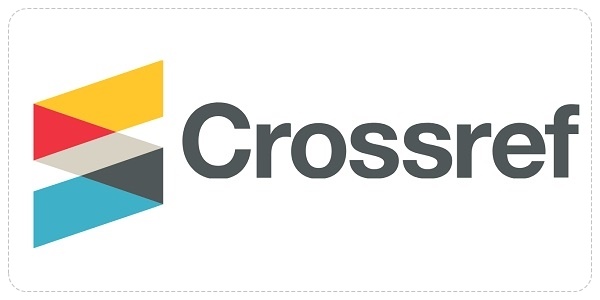Learning Organizations to Build Community Empowerment
Abstract
Keywords
Full Text:
PDFReferences
Aliping, J. B., & Parcasio, I. G. (2018). Training Design Facilitation Framework for Adult Education: An Application of Andragogy. Mountain Journal of Science and Interdisciplinary Research (formerly Benguet State University Research Journal), 78(2), 95-113.
Andersson, T., & Gadolin, C. (2020). Understanding institutional work through social interaction in highly institutionalized settings: lessons from public healthcare organizations. Scandinavian Journal of Management, 36(2), 101-107.
Areekul, C., Ratana-Ubol, A., & Kimpee, P. (2015). Model development for strengthening social capital for being a sustainable lifelong learning society. Procedia-Social and Behavioral Sciences, 191, 1613–1617.
Ayub, D., Baheram, M., & Achmad, S. S. (2014). Tanggung jawab pengelola pusat kegiatan belajar masyarakat dalam melaksanakan kegiatan pendidikan non formal di Kabupaten Rokan Hulu, Propinsi Riau. Jurnal Pendidikan, 5(2), 106–114.
Belwalkar, S., Vohra, V., & Pandey, A. (2018). The relationship between workplace spirituality, job satisfaction and organizational citizenship behaviors–an empirical study. Social Responsibility Journal, 14(2), 410-430.
Bogdan, R., Taylor, S. J., & Taylor, S. S. (1975). Introduction to qualitative research methods: A phenomenological approach to the social sciences. New Jersey: Wiley-Interscience.
Briker, R., Hohmann, S., Walter, F., Lam, C. K., & Zhang, Y. (2021). Formal supervisors' role in stimulating team members' informal leader emergence: Supervisor and member status as critical moderators. Journal of Organizational Behavior, 42(7), 913-932.
Capraro, J. F. (2004). Community organizing+ community development= community transformation. Journal of Urban Affairs, 26(2), 151–161.
Carvalho, A., Teixeira, S. J., Olim, L., Campanella, S. D., & Costa, T. (2021). Pedagogical innovation in higher education and active learning methodologies–a case study. Education+ Training, 63(2), 195-213.
Dieleman, H. (2013). Organizational learning for resilient cities, through realizing eco-cultural innovations. Journal of Cleaner Production, 50, 171-180.
DuFour, R. (2004). What is a “professional learning community”? Educational Leadership. 61(8), 6-11.
Glaser, B. G., & Strauss, A. L. (2017). Discovery of grounded theory: Strategies for qualitative research. Milton Park: Routledge.
Hatefishojae, S., Islami, S. G., & Rezaei, M. (2021). Role of local and urban textures in promoting social interactions of residents and emphasizing living centers theory of Christopher Alexander. Frontiers of Architectural Research, 10(1), 66–78.
Hofstra, B., Corten, R., & Buskens, V. (2015). Learning in social networks: Selecting profitable choices among alternatives of uncertain profitability in various networks. Social Networks, 43, 100–112.
Houde, J. (2006). Andragogy and motivation: An examination of the principles of andragogy through two motivation theories. Online Submission, 1-8.
Jamaris, J. (2019, December). Development of Internal Quality Assurance Equal Education. In 5th International Conference on Education and Technology (ICET 2019) (pp. 410-413). Atlantis Press.
Leidner, D. E., Gonzalez, E., & Koch, H. (2020). An affordance perspective of enterprise social media and organizational socialization. In Strategic information management (pp. 364-402). Routledge.
Maduretno, T. W., & Fajri, L. (2019). The effect of optimization learning resource based on Planning, Organizing, Actuating, Controlling (POAC) on contextual learning to students’ conceptual understanding of motion and force material. Journal of Physics: Conference Series, 1171(1), 12012.
Marshall, B., Heinzen, T., & Roberts, K. (2018). Qualitative, quantitative, and mixed methods research designs. California: SAGE Publications Inc.
Moleong, L. J. (2011). Metode Penelitian Kualitatif. Bandung: Remaja Rosda Karya.
Musa, S., Akil, & Syahid, A. (2020). Effect of Transformative Leadership Credibility on Management of Community Learning Centers. 405 (Iclles 2019), 151–153.
Nurabadi, A., Gunawan, I., & Sari, Y. L. (2019, December). The application of informal supervision to improve the quality of learning in laboratory schools. In The 4th International Conference on Education and Management (COEMA 2019) (pp. 78-81). Atlantis Press.
Pani-Harreman, K. E., Bours, G. J., Zander, I., Kempen, G. I., & van Duren, J. M. (2021). Definitions, key themes and aspects of ‘ageing in place’: a scoping review. Ageing & Society, 41(9), 2026-2059.
Pilz, M., & Wilmshöfer, S. (2015). Formal, nonformal, and informal learning in rural India: The case of fishing families on the Chilika Lagoon. Prospects, 45(2), 231–243.
Pramudia, J. R., Sardin, N. K., & Hilmi, M. I. (2017). Model management activity Community Learning Center (CLC) based on local wisdom to improve quality of nonformal education service. 3rd NFE Conference on Lifelong Learning (NFE 2016), 38–41.
Raes, E., Decuyper, S., Lismont, B., Van den Bossche, P., Kyndt, E., Demeyere, S., & Dochy, F. (2013). Facilitating team learning through transformational leadership. Instructional Science, 41, 287-305.
Rahma, R. A., Desyanty, E. S., & Wahyuni, S. (2019). The role of Community Learning Center (CLC) in providing nonformal education services based on entrepreneurship. Journal of Nonformal Education, 5(2), 109–116.
Rogers, E. M., & Singhal, A. (2003). Empowerment and communication: Lessons learned from organizing for social change. Annals of the International Communication Association, 27(1), 67–85.
Schein, E. H. (2016). Organizational socialization and the profession of management. In Organizational influence processes (pp. 283-294). Routledge.
Senge, P. M. (2017). The leaders new work: Building learning organizations. In Leadership perspectives (pp. 51-67). Routledge.
Shahrabi, B. (2012). The role of organizational learning and agility in change management in state enterprises: A customer-oriented approach. International Research Journal of Applied and Basic Sciences, 3(12), 2540-2547.
Shantini, Y., Hidayat, D., & Oktiwanti, L. (2019). Community learning center in Indonesia: Managing program in nonformal education. International Journal of Research & Review, 6(11), 522-532.
Slavin, R. E. (2011). Instruction based on cooperative learning. Milton Park: Routledge.
Susilo, H. (2017, September). The Impact of Basic Literacy Program to Create a Learning Society. In 9th International Conference for Science Educators and Teachers (ICSET 2017) (pp. 52-55). Atlantis Press.
Tang, S. Y., Wong, A. K., Li, D. D., & Cheng, M. M. (2017). The contribution of non-formal learning in higher education to student teachers’ professional competence. Journal of Education for Teaching, 43(5), 550-565.
Terry, D., Nguyen, H., Perkins, A. J., & Peck, B. (2020). Supervision in healthcare: A critical review of the role, function and capacity for training. Universal Journal of Public Health, 8(1), 1-14.
Ţurcanu, C. (2021). Conceptual aspects of extracurricular education, culture and society field. In Scientific Collection” InterConf” (Vol. 44, pp. 114-123).
Villalba‐García, E. (2021). Validation of non‐formal and informal learning: The hero with a thousand faces?. European Journal of Education, 56(3), 351-364.
Wahyuingsing, A., & Hidayati, U. (2018). Transfer of kowledge local wisdom ‘ blitar kartika rukmiâ€tm: promote entrepreneurship. Journal of Education and Vocational Research, 9(1), 17–22.
Young, D. G. (2019). Supervised practice experiences and professional preparation of graduates from student affairs master's programs. Journal of College Student Development, 60(3), 290-306.
DOI: https://doi.org/10.17509/pdgia.v20i1.42869
Refbacks
- There are currently no refbacks.
INDEXED BY

This work is licensed under a Creative Commons Attribution-ShareAlike 4.0 International License
















